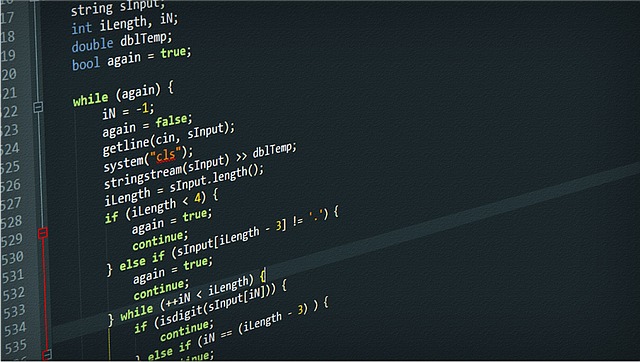C23: The Latest Standard for the C Programming Language
C23 is the latest version of the ISO C standard, officially published in February 2024. It builds upon C17 (published in 2018) and introduces new features, library functions, and improvements to the language. Here’s a comprehensive overview, covering its key aspects, benefits, challenges, and compiler support:
1. What’s New in C23? (Key Features)
C23 isn’t a revolutionary overhaul like C99 was, but it’s a significant evolution. Here’s a breakdown of the most important additions:
- Modules: This is arguably the biggest change. Modules address long-standing issues with C’s header file inclusion system.
- Improved Compilation Times: Modules are precompiled and imported, reducing parsing and preprocessing overhead. This can dramatically speed up build times, especially in large projects.
- Encapsulation: Modules provide better encapsulation, hiding implementation details and reducing the risk of naming conflicts.
- Explicit Interfaces: Modules define explicit import and export interfaces, making dependencies clearer.
importandmodulekeywords: These are the core keywords for working with modules.
#embeddedDirective: Allows embedding files directly into the source code during preprocessing. Useful for including data files or resources._GenericSelection Improvements: Enhancements to the_Generickeyword, making it more powerful and flexible for compile-time conditional code generation.static_assertImprovements: More flexible and informativestatic_assertfor compile-time assertions.- New Math Functions: A collection of new mathematical functions are added to the
hypot(hypotenuse)erfanderfc(error function and complementary error function)lgamma(logarithm of the gamma function)nearbyint(rounding to the nearest integer)
- String Literals with UTF-8: Support for UTF-8 string literals, allowing direct representation of Unicode characters in code. This is a significant improvement for internationalization.
strncatSafety: The standard now requiresstrncatto null-terminate the destination buffer if there’s enough space, addressing a common source of buffer overflows.fenv_round: A new function to control floating-point rounding modes.stdatmic.hImprovements: Further refinements to the atomic operations header, enhancing support for concurrent programming.- Bit Manipulation Intrinsics: New intrinsics for bit manipulation, potentially allowing for more efficient code generation.
- Removal of Deprecated Features: Some features deprecated in previous standards have been removed.
2. Benefits of Using C23
- Improved Code Quality: Features like modules and
static_asserthelp write more robust and maintainable code. - Faster Compilation: Modules can significantly reduce build times, especially for large projects.
- Enhanced Concurrency Support: Improvements to atomic operations make concurrent programming easier and safer.
- Better Internationalization: UTF-8 string literals simplify handling Unicode characters.
- Increased Safety: Changes to
strncatand other functions address common security vulnerabilities. - Modernization: C23 brings the language up to date with modern programming practices.
3. Challenges and Considerations
- Compiler Support: As of early 2024, full C23 support is still emerging. Not all compilers fully implement all the new features. (See section 5 below)
- Learning Curve: Modules, in particular, require developers to learn a new way of organizing and structuring their code.
- Portability: While C aims for portability, relying heavily on C23-specific features might reduce portability to older systems or compilers.
- Build System Integration: Integrating modules into existing build systems (Make, CMake, etc.) can require some configuration and adjustments.
- Library Support: Third-party libraries may not immediately support C23 modules.
4. How C23 Differs from C17 and C11
| Feature | C11 | C17 | C23 |
|---|---|---|---|
| Modules | No | No | Yes |
| UTF-8 Strings | No | No | Yes |
#embedded |
No | No | Yes |
strncat Safety |
Vulnerable | Vulnerable | Fixed |
| Atomic Ops | Basic | Improved | Further Improved |
| Math Functions | Limited | Limited | Expanded |
_Generic |
Basic | Basic | Improved |
static_assert |
Basic | Basic | Improved |
5. Compiler Support (as of February 2024)
Compiler support for C23 is still evolving. Here’s a snapshot:
- GCC (GNU Compiler Collection): GCC 14 (released in February 2024) has experimental support for C23 modules. You’ll need to use the
-std=c23flag and enable modules with-fmodules. Expect some bugs and limitations. Support is improving with each release. - Clang: Clang is also actively working on C23 support. Recent versions (Clang 17 and later) have experimental module support. Use
-std=c23and-fmodulesflags. - Microsoft Visual C++ (MSVC): MSVC’s C23 support is currently lagging behind GCC and Clang. It’s expected to improve in future releases.
- Intel oneAPI Compiler: Intel is also working on C23 support, but details are still emerging.
Important: Always check the documentation for the specific version of your compiler to determine the level of C23 support. Experimental support means that features may not be fully implemented or may change in future releases.
6. Resources for Learning More
- ISO C23 Standard: https://www.iso.org/standard/79849.html (Requires purchase)
- PPL Reference C23 Features: https://ppl.software/c23-features/ (Excellent overview)
- LWN.net C23 Articles: https://lwn.net/Articles/886419/ (In-depth articles on C23)
- Compiler Documentation: GCC, Clang, and MSVC documentation for C23 support.
- Online Tutorials and Articles: Search for “C23 tutorial” or “C23 modules” to find various resources.
In conclusion: C23 is a valuable update to the C language, offering significant improvements in code quality, compilation speed, and safety. While compiler support is still maturing, it’s worth exploring the new features and considering how they can benefit your projects. Modules, in particular, have the potential to revolutionize C development. Keep an eye on compiler releases and documentation to stay up-to-date with the latest C23 support.
